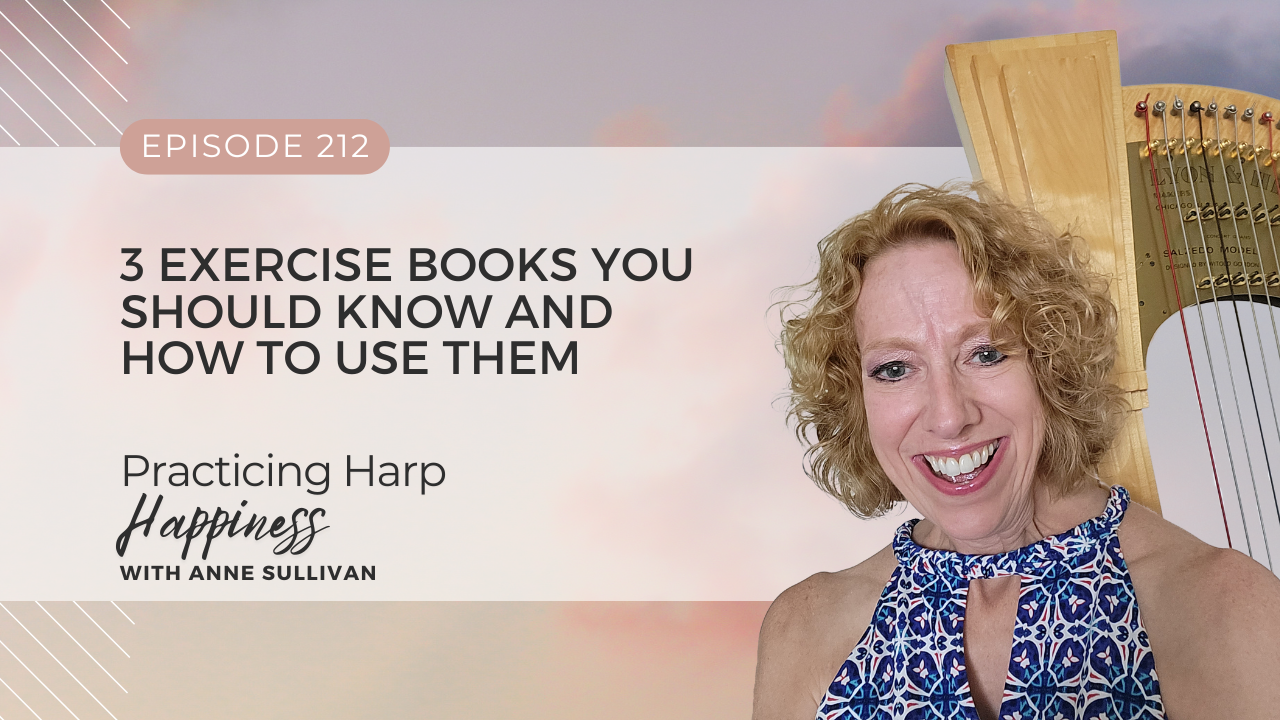Practicing Harp Happiness
#215: The Superpower of Shortcuts and Why You Need Them Now
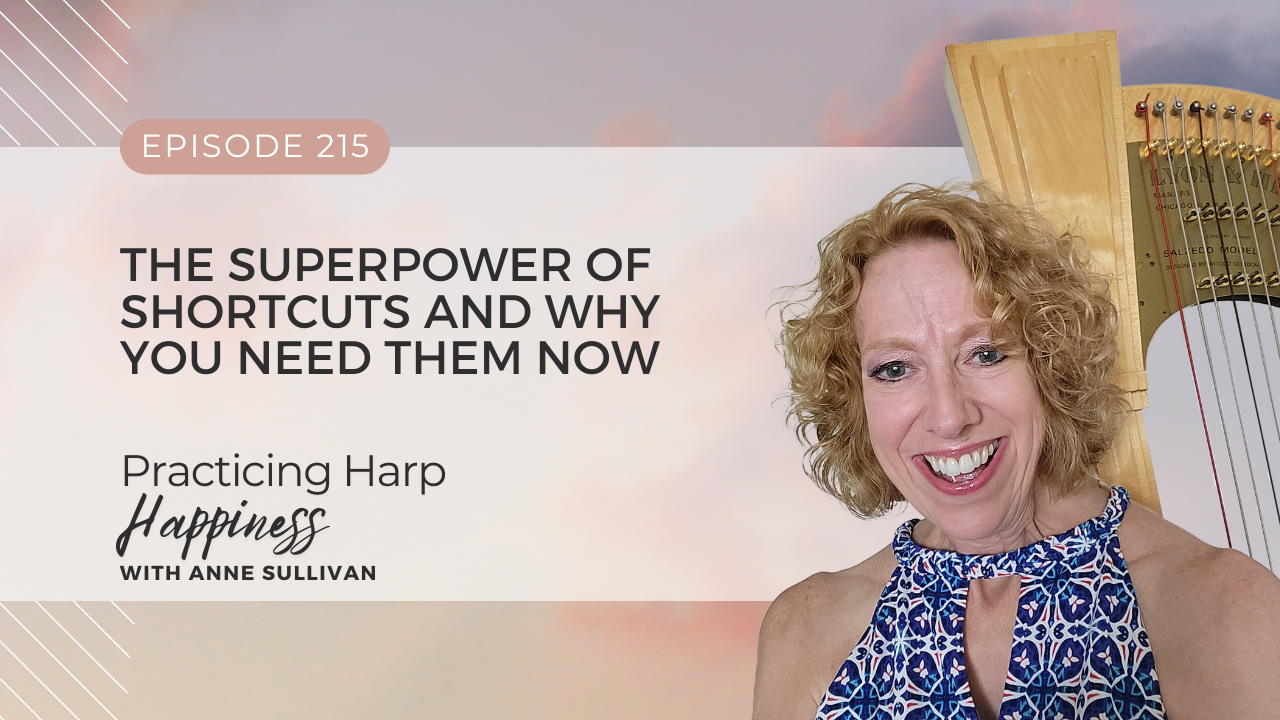
There’s a third kind of shortcut, though, that I want us to think about today. It’s the kind of shortcut that comes with experience. I remember when I was learning to sew and following all the directions very carefully so that I wouldn’t mess up. I even learned which pattern companies had the clearest directions, and which seemed to presume that I knew more than I did, so there were steps missing. Those missing steps weren’t shortcuts, per se; they were just knowledge that a more experienced sewer would have.
One day, I watched a professional seamstress start to cut out a dress. She was making a concert dress for me, and I was excited to watch her start on it while I could watch. What turned out to be an even bigger thrill was to see that instead of painstakingly pinning the pattern onto the cloth, the way I learned in Home Ec class, she just laid a few weights on the pattern to hold it lightly in place and cut around it. What a shortcut and a timesaver! And why had I never though...
#214: Recovering from Burnout - the 5R Framework to Recover and Reset
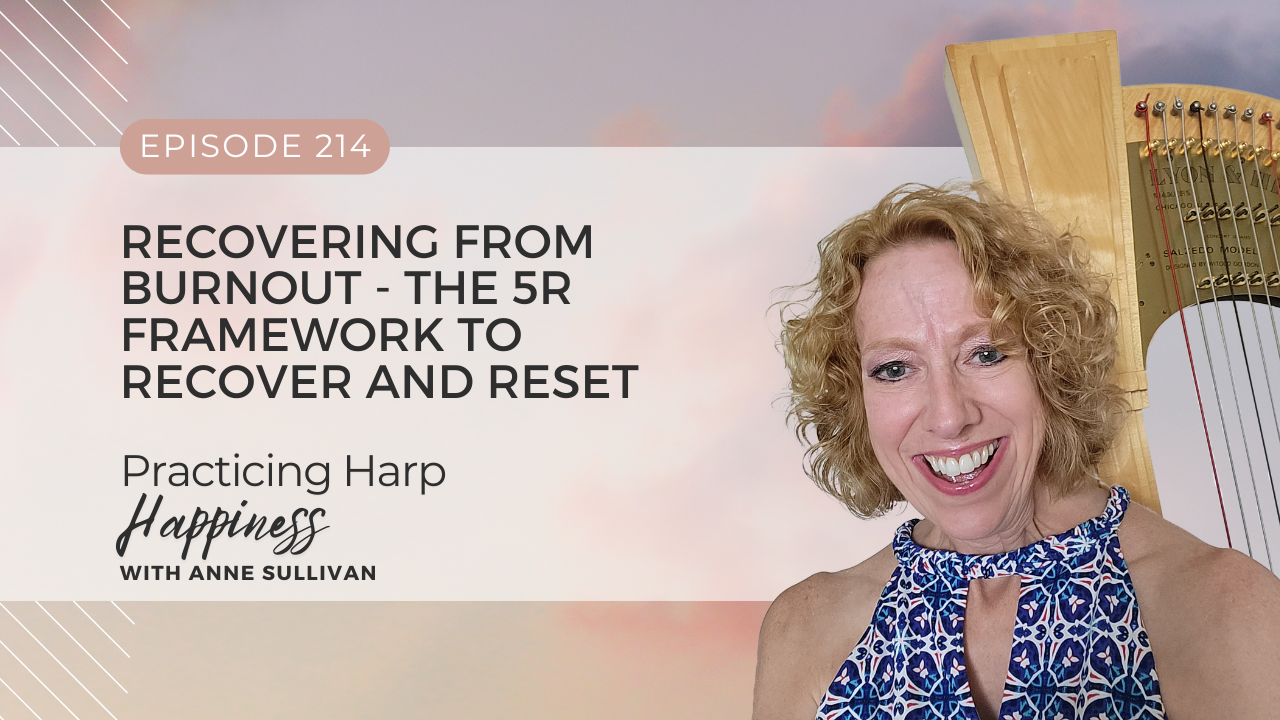
It’s summer time here and time for a little R and R, rest and relaxation, maybe even time away. You might be feeling like you need some time away from whatever stress you’ve been experiencing. I hope it isn’t your harp playing that’s been causing the stress, but even playing and practicing the harp can cause frustration and burnout. If you’re feeling like you need a break from your harp playing, I’m here to help and to make sure you take that break in a way that will bring you more confidence and more joy in your harp playing again.
Actually, at the time you are listening to this, I am on vacation with my husband. We are in Bermuda, which is one of our favorite places to vacation. We went there for our honeymoon and loved it so much that we planned to go back every five years. We’ve missed a couple of those five year milestones; COVID was one of the reasons, of course. But this year, we’re going back and I can’t wait.
Often people will ask me if I take a harp when I’m on vacation,...
#213: Freedom to Choose - How to Make Any Piece Sound Right
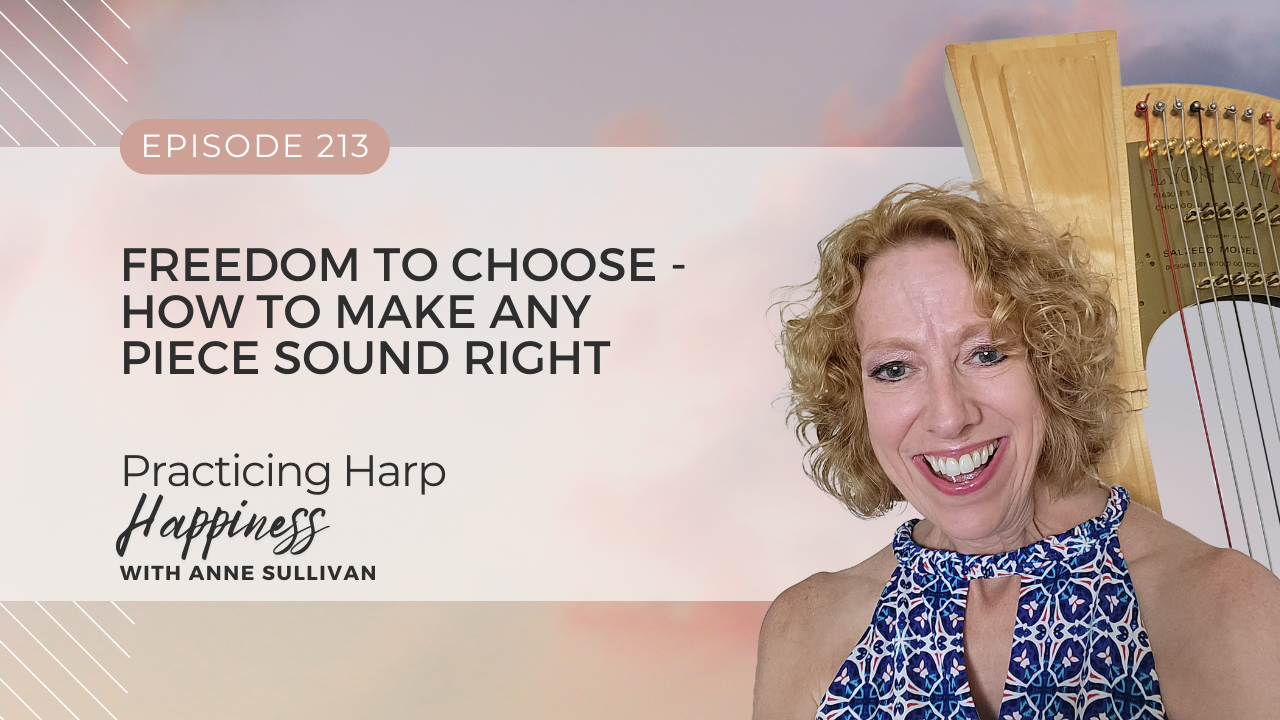
Have you ever made something and it turned out ok, but somehow it just didn’t look right? Maybe you thought those two paint colors would go together, but now you’re not sure. Or maybe the furniture arrangement in the living room looked great on paper but it sort of doesn’t work now that you see everything in place.
I think we’ve all had those moments. I had one not long ago with a photo I was doing. It wasn’t quite right, but since I had to get it done, all I could do was to shrug and sign off on it, whether it was right or not. But if a piece of music we’re working on doesn’t sound right, we want to fix it, not forget it.
I’m sure you know what I mean. You’ve been working hard on a piece. You muster up your courage to do a recording of it and after a lot of takes, you come up with one that you think is pretty good, without noticeable mistakes or hesitations. Then you listen to it, and something’s not right. Is it too slow? Are you not making the dynamics clear? How come it doesn’...
#211: Could Your Practice Today Actually Be More Fun?
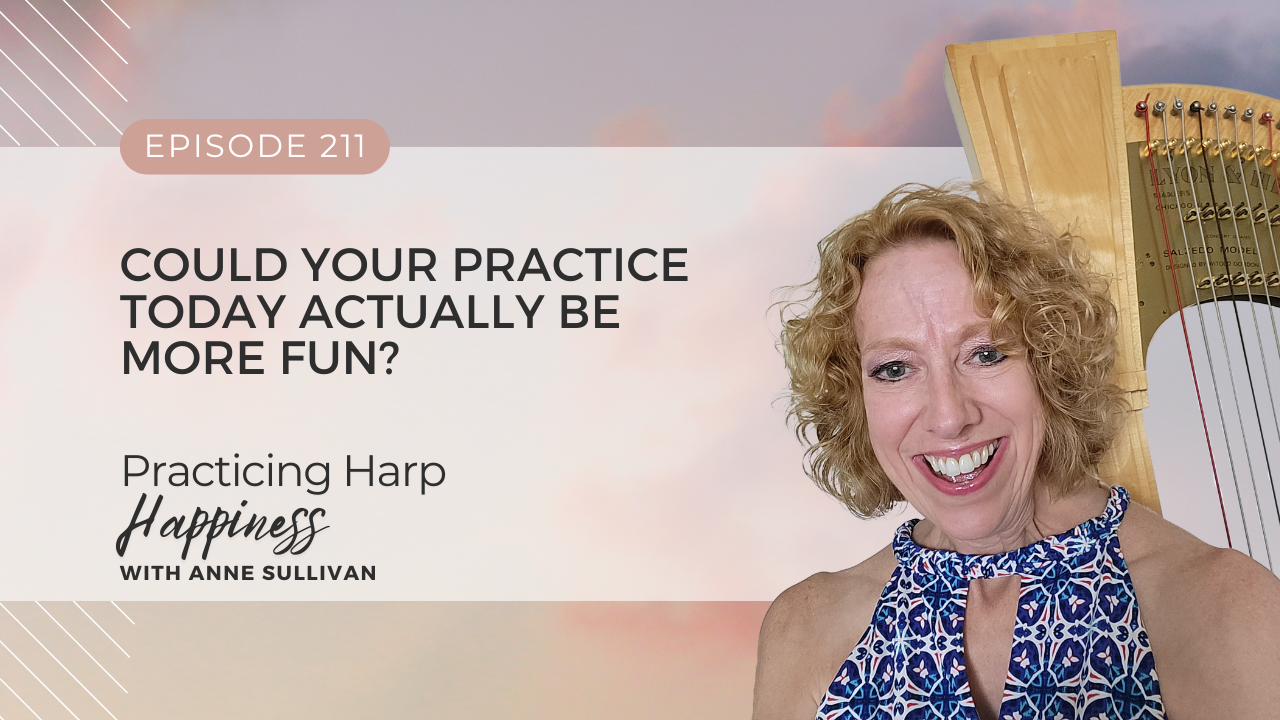
Every time I talk about putting more fun into your practice, I hear feedback like, “I enjoy my practice,” or “I really like doing the challenging work,” or “My favorite part of practice is my exercises and etudes.” All of those harpists are enjoying their practice, and that’s terrific. But that’s not what I mean.
Much of what we do in our practice can accidentally disconnect us from the music we want to make. We identify and correct mistakes. We drill our technique. We repeat passages over and over again. That’s all part of practice, and it is part of what enables us to play well. But there’s so much more that we could be doing in our practice, so much more that is truly aligned with why we are playing the harp.
Here’s an example that may help you understand what I mean. A young person wants to be a doctor because she likes helping people. She goes to medical school where part of her training involves working when she’s physically exhausted. Part of her training also helps her lea...
#210: Do You Hear What I Hear? Listening with Your Ears Open
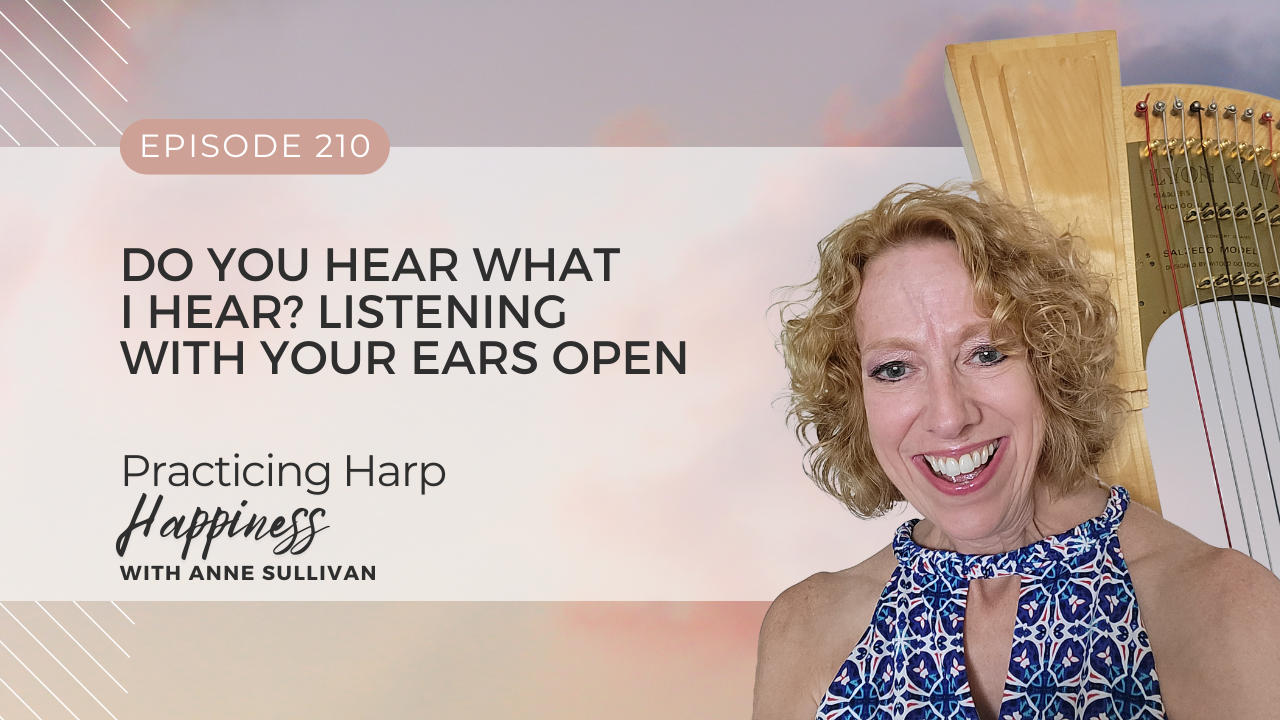
Four friends went to an orchestra concert. Afterward, they went out for dessert and compared notes on the concert, talking about what they heard. Here is what they said:
One person heard the person in the row behind crackling a cough drop wrapper.
One person, a flutist, heard that the clarinet wasn’t in tune with the flute.
One person, a harpist, heard that the orchestra drowned out the harp solo.
One person heard that the piano soloist was humming to himself while he played.
Oddly enough, when the review of the concert appeared in the newspaper the next day, it seemed the critic had gone to a completely different concert. The critic described the pianist as being an impassioned player with a fiery technique, the orchestra as presenting a colorful, well-balanced and nuanced interpretation. There was no mention of out of tune clarinets, or inaudible harps or even noisy cough drop wrappers.
Yes, this is a fictional scenario, although I’ve been part of very similar discussions. I want...
#209: Is Your Practice Not Working? Maybe Hard Work Isn’t the Answer
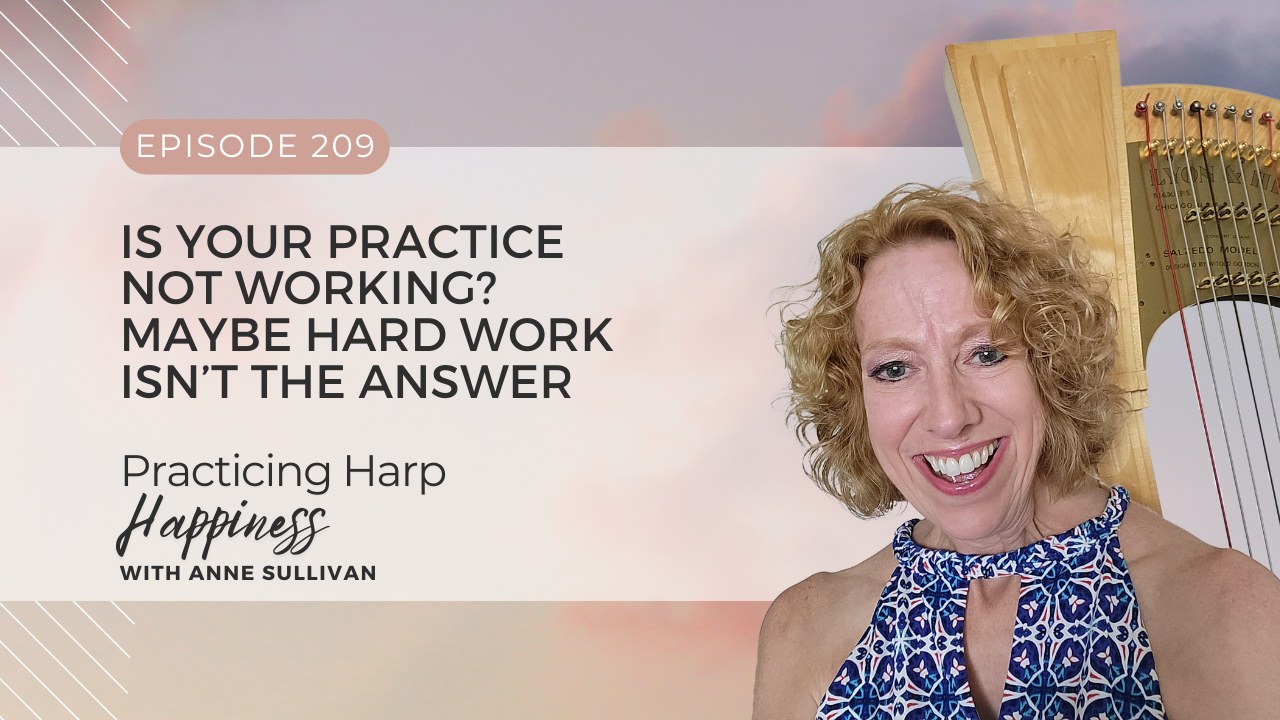
Today I want to talk with you about hard work. I don’t mean how to buckle down and do the hard work. We all know that playing the harp is hard, and we spend a lot of time working out practice techniques, strategies and routines to help us play the music we want in spite of the difficulties.
No, what I want to talk about today is how to get out of the “just buckle down and do it” mindset. The truth is that when it comes to playing the harp or even music in general, sometimes trying harder is counter-productive. For instance, the harder we try to get that harmonic to ring, the more it just thuds. The harder we try to play faster, the more our fingers become tense and so they don’t have the flexibility and agility required for speed. The more we drill those recalcitrant two measures, the more they refuse to flow.
But if hard work isn’t the answer, what is?
Let me be clear. Hard work, or at least work, is necessary. But the way we approach a difficulty in our harp playing shouldn’t ...
#208: Is Music Theory Really Useful? Turning Theory Into Practice
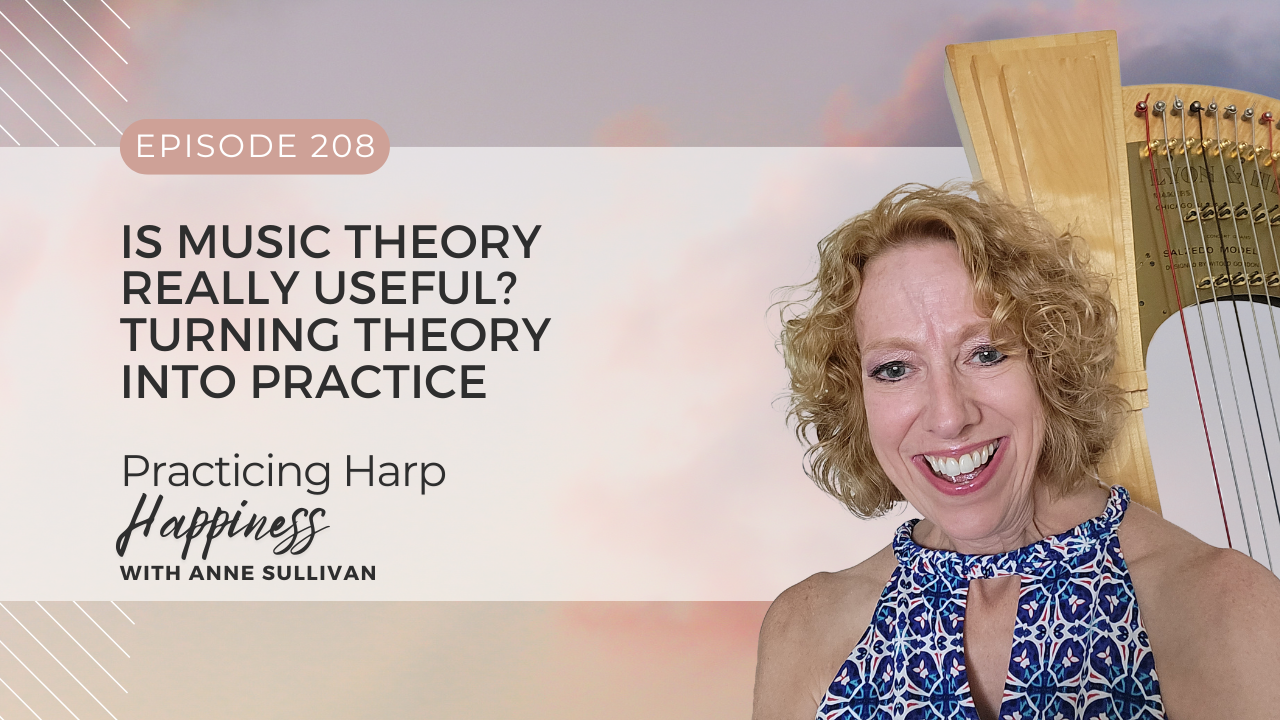
Is studying music theory really useful? Yep. You heard right. I really said that, and I’m a total theory nerd.
I’m not going to leave you in suspense. Of course, knowing music theory is useful and helpful and part of being a good musician. But only - and this is a big “only” - if you know how it’s useful.
Did you ever take a class in school and the whole time you were sitting in class you were thinking, “I’m never going to use this stuff”? Of course, you did. I remember sitting in my calculus class in high school - which, incidentally, I really enjoyed - knowing that I was going to music school and very unlikely to ever use any of this kind of higher mathematics again. Maybe your useless class was a math course, or it could have been just about any other subject. Sometimes we discovered later that we were wrong; for instance, a little understanding of chemistry is helpful if you’re trying to work out ingredient substitutions in a recipe. At the time, though, the information falls...
#207: How to Choose Your Next Piece
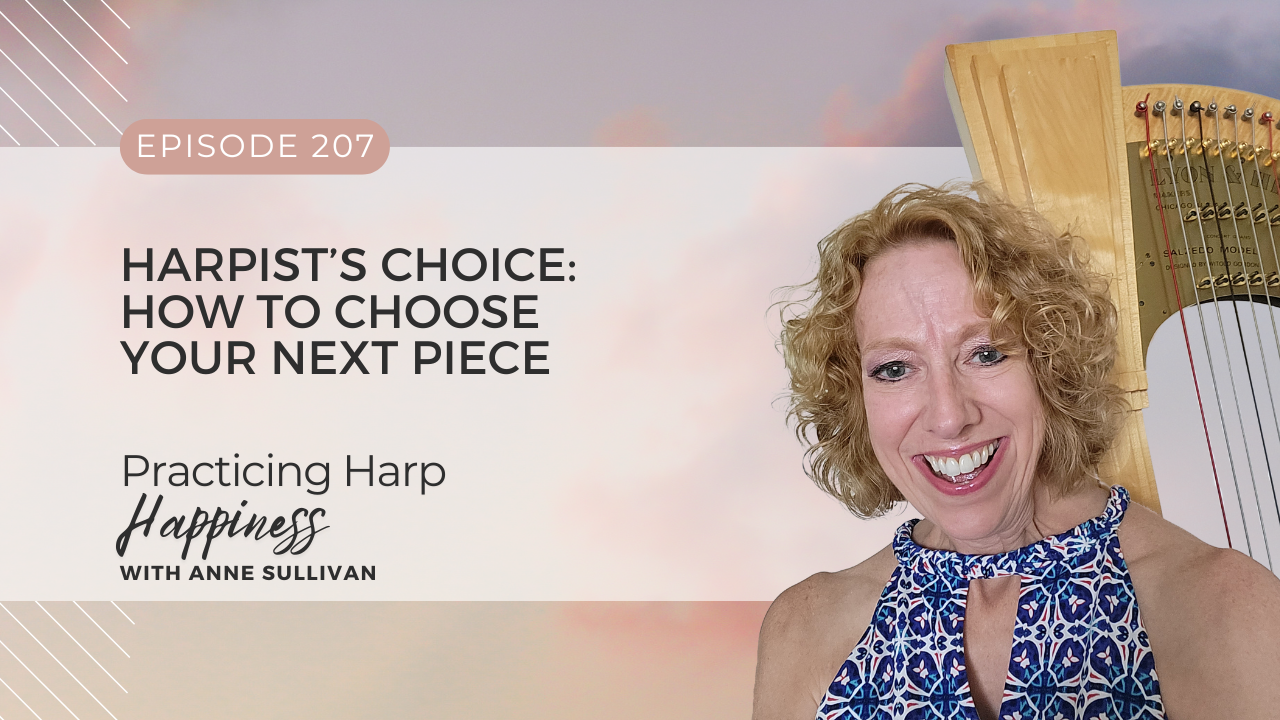
Shel Silverstein wrote a beautiful and supremely short poem that perfectly fits today’s topic. The poem is called “Woulda-Coulda-Shoulda,” and in just seven short lines, Silverstein sums up the ultimate way to prevent regret. He tells us that all those woulda-coulda-shouldas vanish with one little “did.” Doing beats wishing every day.
So if we were sitting in the same room together, sharing a cup of tea, and you asked me what I thought your next piece should be, I’d have to ask you a question right back, “What do you think you want to do?”
Life is filled with “shoulds” and “have tos;” our music doesn’t need to be. Our music is personal to us. The music we play, our repertoire, is something that reflects what we like and who we are. It is a personal expression at every playing level. Your personal musical expression starts from the very first day you are capable of playing a melody on the harp. Your music is in you and your music is you.
So if you need to choose your next piece t...
#206: Looking Beyond: Choose Your Focus
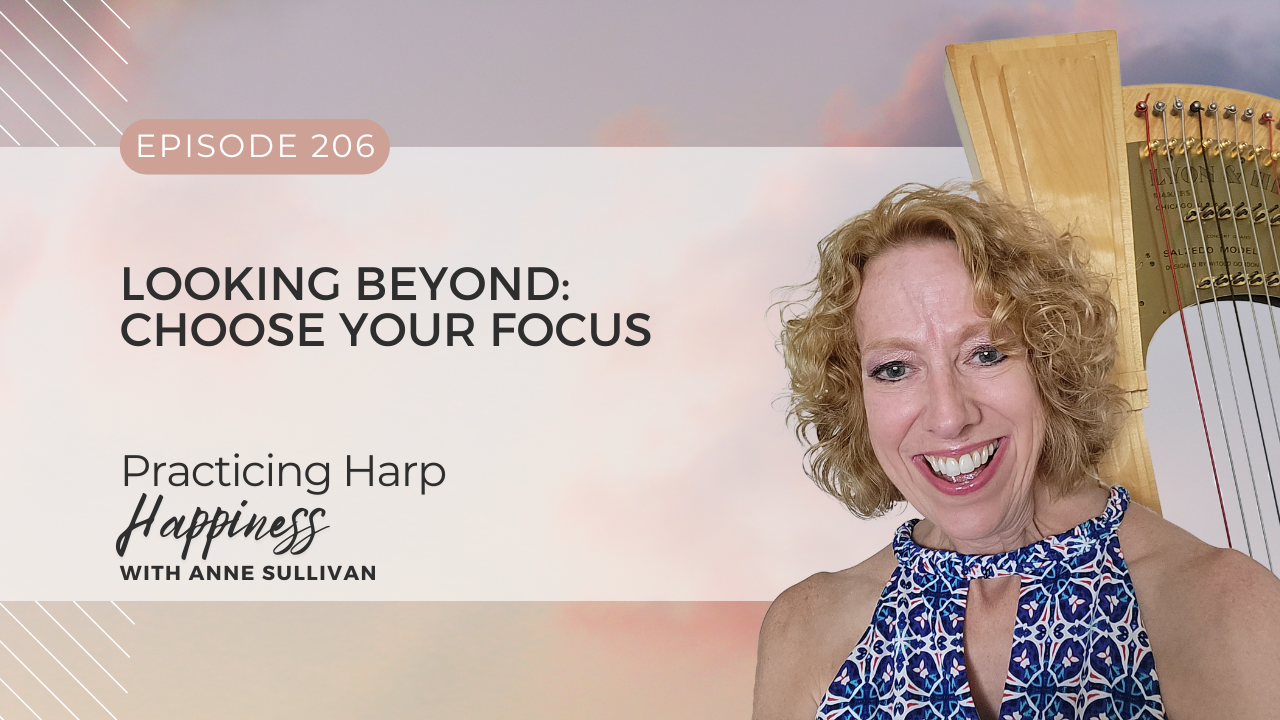
Fact number one: Your focus is in your control.
Fact number two: Your focus is a critical factor in your success and harp happiness.
Conclusion: What you focus on matters… a lot.
In the last episode of the podcast, we were talking about focus in terms of placing your chords. I cited one of my favorite Zig Ziglar quotes, “You hit what you aim at.”
I’m going to put a different spin on that today. We aren’t going to talk about focusing on a goal exactly. We’re going to discuss how to shift your focus to get you beyond a sticking point or a challenge. Here’s my idea in a nutshell: when we focus on the hard thing, we lose perspective on why we are doing the hard thing to begin with. That can cost us a lot in terms of time, energy and enjoyment.
Consider some of the things we focus on that can leave us with a feeling of letdown or even loss. We spend weeks preparing for Christmas, only to realize on December 26th that we didn’t really remember to enjoy the day. Or we put days of effort i...

